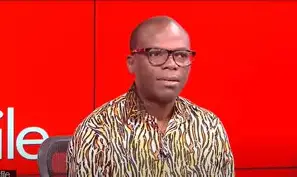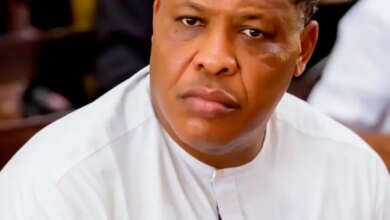Sulemana Braimah commends Torkornoo for resilience amid legal challenge


The Executive Director of the Media Foundation for West Africa (MFWA), Sulemana Braimah, has lauded former Chief Justice Gertrude Araba Esaaba Sackey Torkornoo for her resilience in challenging her removal from office.
Speaking on JoyNews’ Newsfile on Saturday, October 18, Mr. Braimah said the former Chief Justice deserves commendation for standing firm despite public criticism and political pressure.
He noted that Justice Torkornoo’s decision to fight the process that led to her removal should be viewed not as defiance, but as an act that could strengthen Ghana’s legal system.
“I think that I would commend the former Chief Justice for her resilience,” he said. “Sometimes we listen to people, and it’s as if this person is like me, who is not a legal person. But this is somebody who has risen through the ranks to become the Chief Justice, and so we should give her at least some benefit of the doubt in terms of her understanding of what the laws are.”
Mr. Braimah added that Justice Torkornoo is not pursuing the matter alone but has a capable legal team, including respected figures such as former Attorney General Ayikoi Otoo.
“She is doing so with her lawyers, and there was a time I know lawyer Otoo represented her, and I should still want to think that he is part of her team,” he said. “And this is a former Attorney General, and I believe that what is happening is a way to help strengthen our legal system.”
Citing past events, the MFWA boss drew parallels with the 2012 election petition, explaining that even though the petitioners lost, the process itself improved Ghana’s electoral framework.
“If you look at the 2012 election petition, for example, people will say that we told them they would lose. Yes, in the end, the Supreme Court established that President Mahama won, but let’s not forget that in that decision a lot of recommendations were made which ended up strengthening our electoral system,” he noted. “So I think it’s okay to fight on if you feel your rights have been abused.”
On one of the contentious issues in the case of travel allowances, Mr. Braimah said his understanding evolved after reading the relevant constitutional provisions.
“One of the things that I was seriously convinced early on about was this thing about travel allowance. I was asking myself what could be wrong with this until I engaged, and somebody asked me to read Article 71 of the Constitution,” he said.
He explained that Article 71 clearly outlines that the President, acting on the recommendation of a committee, determines the salaries, benefits, and allowances of certain public office holders, including the Chief Justice.
“At that point, I was convinced that, well, if that has been the norm, it doesn’t make it legal, and therefore I can understand why the committee would come up with the determination that it was even a wrong thing to do,” he remarked.
Despite his acceptance of parts of the committee’s reasoning, Mr. Braimah maintained that the former Chief Justice’s perseverance deserves public respect.
“We shouldn’t write her off even if we think that she’s abusing the system,” he said. “She could have, right at the beginning, quietly gone to see the President to say, ‘Mr. President, well, I will resign so that I will be entitled to all my benefits,’ because to be sacked means you lose everything. And yet she was prepared to fight on. I think that is what we need as a country rather than condemning her and writing her off.”
DISCLAIMER: The Views, Comments, Opinions, Contributions and Statements made by Readers and Contributors on this platform do not necessarily represent the views or policy of Multimedia Group Limited.
DISCLAIMER: The Views, Comments, Opinions, Contributions and Statements made by Readers and Contributors on this platform do not necessarily represent the views or policy of Multimedia Group Limited.
Source link





